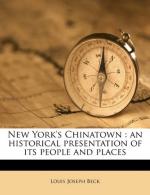|
This section contains 420 words (approx. 2 pages at 300 words per page) |

|
1021-1086
Poet And Statesman
Confucian Ideals. Wang Anshi was a writer, poet, and statesman. His educational background in the Confucian beliefs and experience in literature aided him in composing his reforms. He believed that the empire should unite in a manner similar to the ways practiced by the ancient kings. Ten years before Wang's promotion to the position of Grand Councillor, he traveled to the capital, Kaifeng, to deliver a speech that has come to be called the "Ten Thousand Word Memorial," in which he stated his philosophy of how China should be run. Although he believed that the key to operating a successful government was to exhibit Confucian ideals, he saw that China needed to have capable rulers who promoted these ideals for the overall betterment of the country.
Reformer. Wang served from 1069 to 1076 as Grand Councillor under Emperor Shenzong, who reigned from 1068 to 1085. During...
|
This section contains 420 words (approx. 2 pages at 300 words per page) |

|




